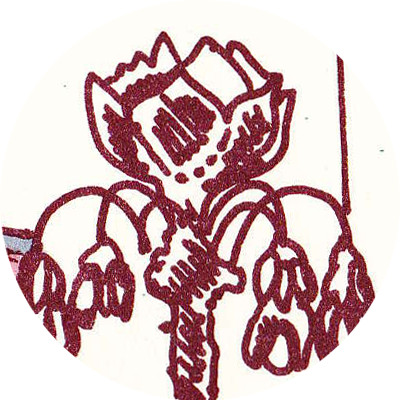For Gruffydd
Fret, fret, fret, these days of diluted air,
we take to Quarry Lane searching for the mare:
me and me son, walking off the stupor
in an arcane pilgrimage to the edge of the edge
of town, where as a bairn I was often taken
and told the same stories my great-grandfather
handed down: when the road out
was seldom galloped, tales unassailable,
narratives lapped up as broth on buttered stotties.
Now, the tips of her ears, dainty white fronds,
protrude above bushes I was never taught the names for
but her flank is invisible – covered by what I’ll call
a thicket of green, blooming and puffing out
its nectar on the first spring-like day of the year.
Brine blowing up from the bay swells
with three or four birds’ choruses known
from years of hearing the same shrill on repeat.
Meanwhile the treadmill sea does the rote work
of any inferior maritime metaphor as the stone harp
at Tynemouth (an image borrowed from another poet)
fills gaps in post-war cottages on streets called
Cragside and The Lonnen, adding to the collage
I’ll call a communal fresco – this Trompe-l’œil
that I’m formulating for self and son –
all self-same sons who’ll make their way back
up these little screes to find the image overgrown,
no local authority or Trust-erected panel in sight,
but a knowing, sinew-deep, that the story’s just right.
Fret, fret, fret, these days of diluted air,
we take to Quarry Lane searching for the mare:
me and me son, walking off the stupor
in an arcane pilgrimage to the edge of the edge
of town, where as a bairn I was often taken
and told the same stories my great-grandfather
handed down: when the road out
was seldom galloped, tales unassailable,
narratives lapped up as broth on buttered stotties.
Now, the tips of her ears, dainty white fronds,
protrude above bushes I was never taught the names for
but her flank is invisible – covered by what I’ll call
a thicket of green, blooming and puffing out
its nectar on the first spring-like day of the year.
Brine blowing up from the bay swells
with three or four birds’ choruses known
from years of hearing the same shrill on repeat.
Meanwhile the treadmill sea does the rote work
of any inferior maritime metaphor as the stone harp
at Tynemouth (an image borrowed from another poet)
fills gaps in post-war cottages on streets called
Cragside and The Lonnen, adding to the collage
I’ll call a communal fresco – this Trompe-l’œil
that I’m formulating for self and son –
all self-same sons who’ll make their way back
up these little screes to find the image overgrown,
no local authority or Trust-erected panel in sight,
but a knowing, sinew-deep, that the story’s just right.
Jake
Morris-Campbell was born in South Shields, England, in 1988.
His debut collection of poetry, Corrigenda for Costafine Town, will be
published by Blue Diode Press in November. He was recently selected by the BBC
and Arts and Humanities Research Council (UK) as a 2021 New Generation Thinker.
He is preparing BBC Radio 3 broadcasts on arts and culture, bringing his academic
research to a wide audience. A recipient of New Writing North’s Andrew
Waterhouse award, Jake has contributed to a number of multidisciplinary arts
projects. He works between teaching and research roles at Newcastle University
and as a freelance writer and tutor.
©2026 Volume Poetry
